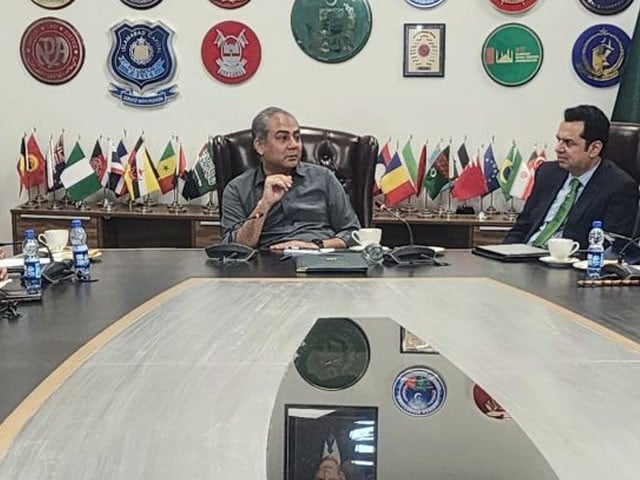Interior Minister Mohsin Naqvi stated that Prime Minister Shehbaz Sharif and the military leadership played a pivotal role in the Iran-Israel conflict and the subsequent ceasefire between the two countries.
“Prime Minister Shehbaz Sharif played a crucial role in the ceasefire between Israel and Iran, and the military also played a significant role in this regard. I don’t want to go into further details, but the way PM negotiated with world leaders is something we must be proud of,” he said.
The 12-day war, which began with unprovoked Israeli military strikes in Iran on June 13, resulted in 610 deaths, including senior nuclear scientists and high-ranking military commanders. In retaliation, strikes from Iran killed 28 in Israel.
The US joined the conflict on June 22 with bunker-buster bombings on Iran’s nuclear facilities in Natanz, Fordow, and Isfahan. A US-brokered ceasefire was reached on June 24, shortly after Iran launched missiles at the largest US airbase in the Middle East, located in Qatar.
وفاقی وزیر داخلہ محسن نقوی اور وزیر مملکت داخلہ طلال چوہدری سے چئیرمین رویت ہلال کمیٹی مولاناعبدالخبیر آزاد کی سربراہی میں تمام مکاتب فکر کے جید علمائے کرام کی ملاقات
محرم الحرام خصوصا عاشورہ کے موقع پر امن وامان اور مذہبی ہم آہنگی یقینی بنانے کے لیے تفصیلی تبادلہ خیال pic.twitter.com/W4YYr1l7sI— Ministry of Interior GoP (@MOIofficialGoP) July 3, 2025
Recalling the recent Pakistan-India conflict that ended after US President Trump brokered a ceasefire, he stated that during India’s attack, Field Marshal Asim Munir stood firm and strong, and his resolve was that India would have to suffer four times as much.
The minister made these remarks during a meeting with religious scholars in Islamabad on Thursday, which focused on maintaining law and order during Muharram.
Speaking on the occasion, Naqvi appreciated the role of religious scholars in establishing peace. He suggested that the chairman of the Ruet-e-Hilal Committee adopt a theme of unity among people of different schools of thought, encouraging them to work together without abandoning their own beliefs or interfering with others.
Pakistan-India conflict
The latest escalation between Pakistan and India began on April 22, when an attack in Pahalgam killed 26 people. India immediately blamed Pakistan for the incident. However, Pakistan categorically rejected the Indian blame.
Tensions further escalated in the early hours of May 7, when missile strikes hit six cities in Punjab and Azad Jammu and Kashmir (AJK), destroying a mosque and killing dozens of civilians, including women, children, and the elderly.
Read More: French intelligence official confirms downing of Rafale by Pakistan
In a swift military response, Pakistan’s armed forces shot down Indian warplanes, including three Rafale jets. The confrontation intensified again in the early hours of May 10, when India targeted several Pakistani airbases with missile strikes.
In retaliation, Pakistan launched Operation Bunyanum Marsoos, damaging Indian military installations, including missile storage sites, airbases, and other strategic targets.
On May 10, US President Donald Trump announced that a ceasefire had been reached following intense diplomatic efforts overnight. Minutes later, the agreement was confirmed separately by Foreign Minister Ishaq Dar and the Indian foreign secretary.
